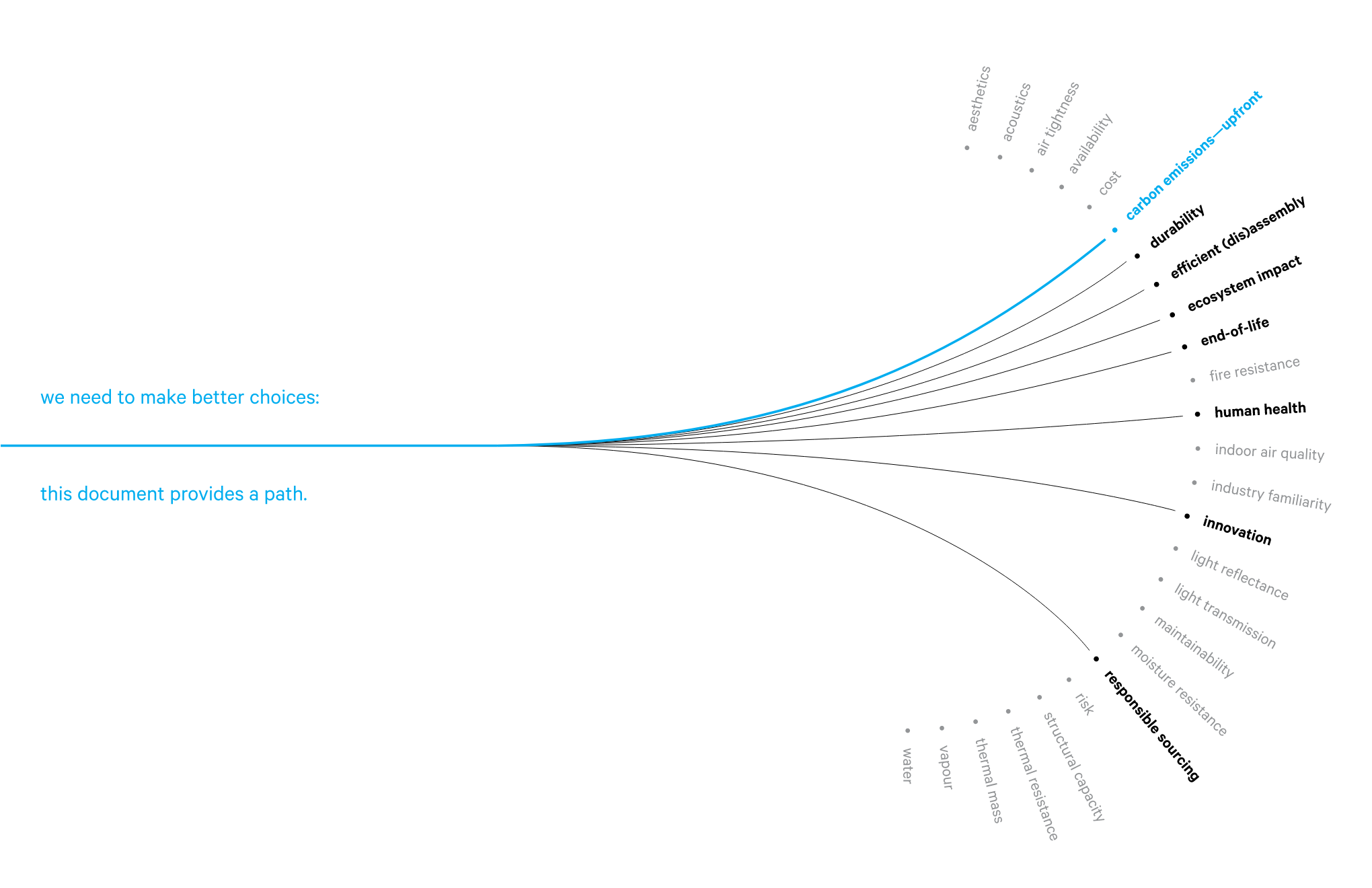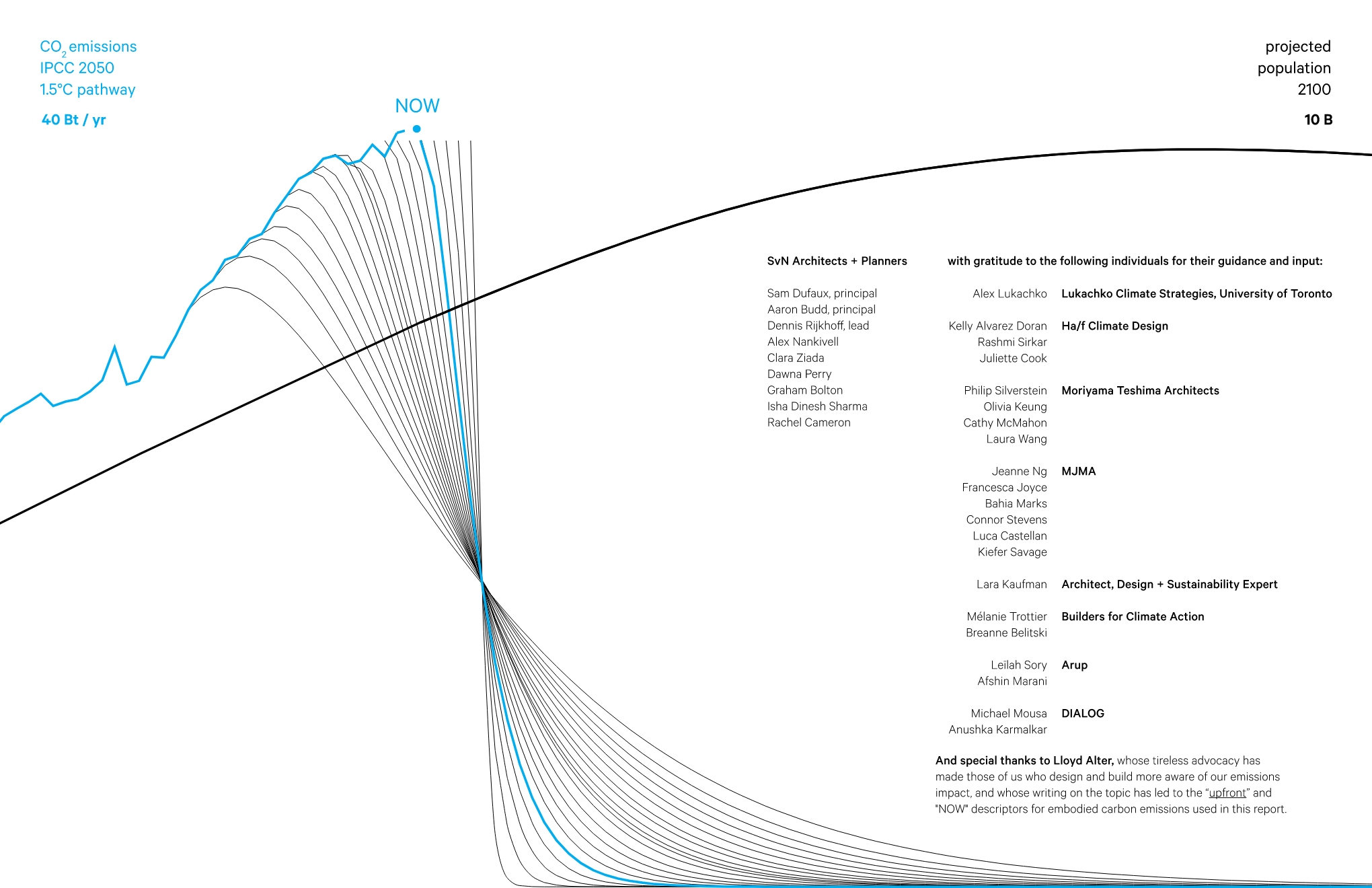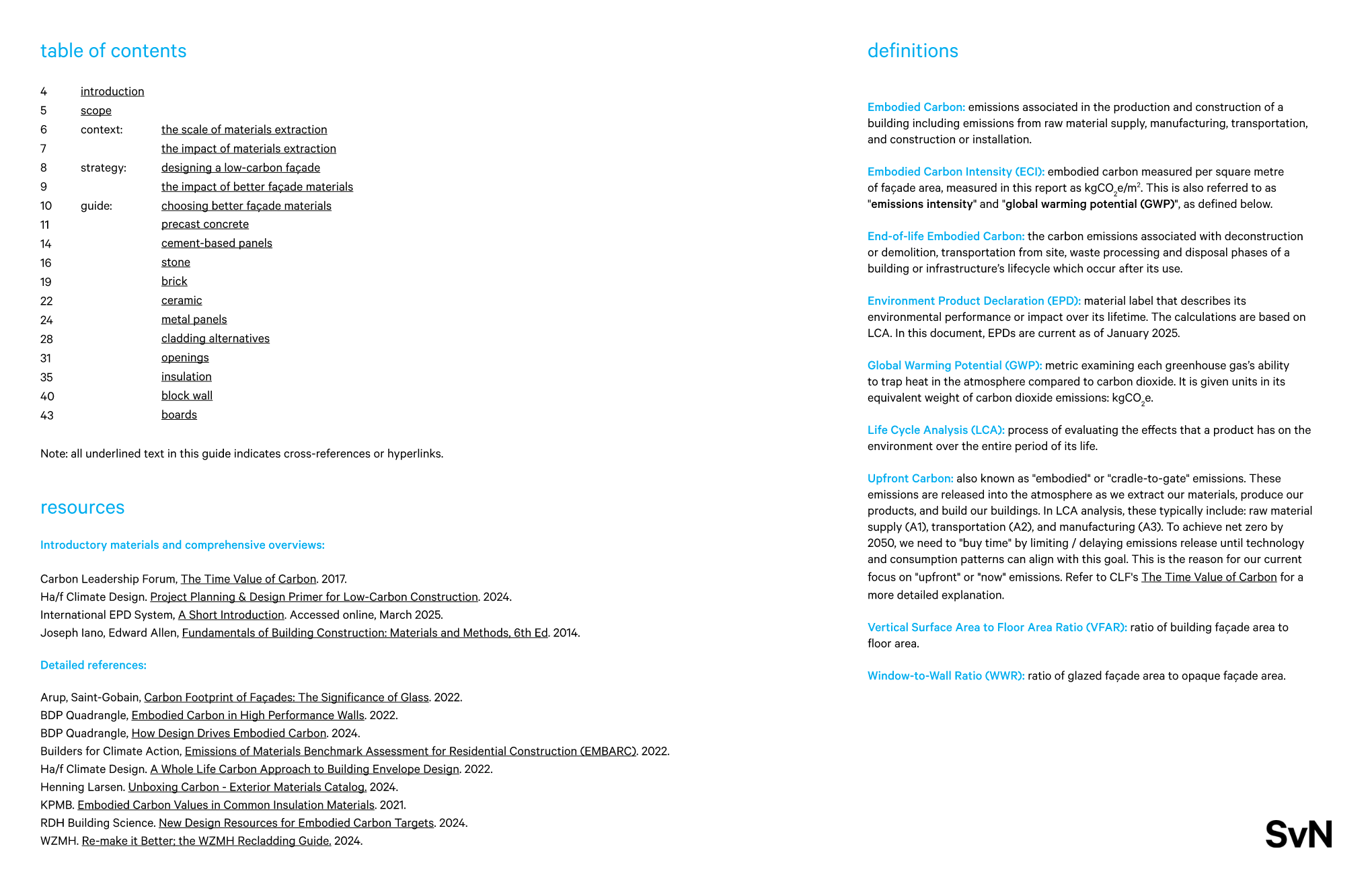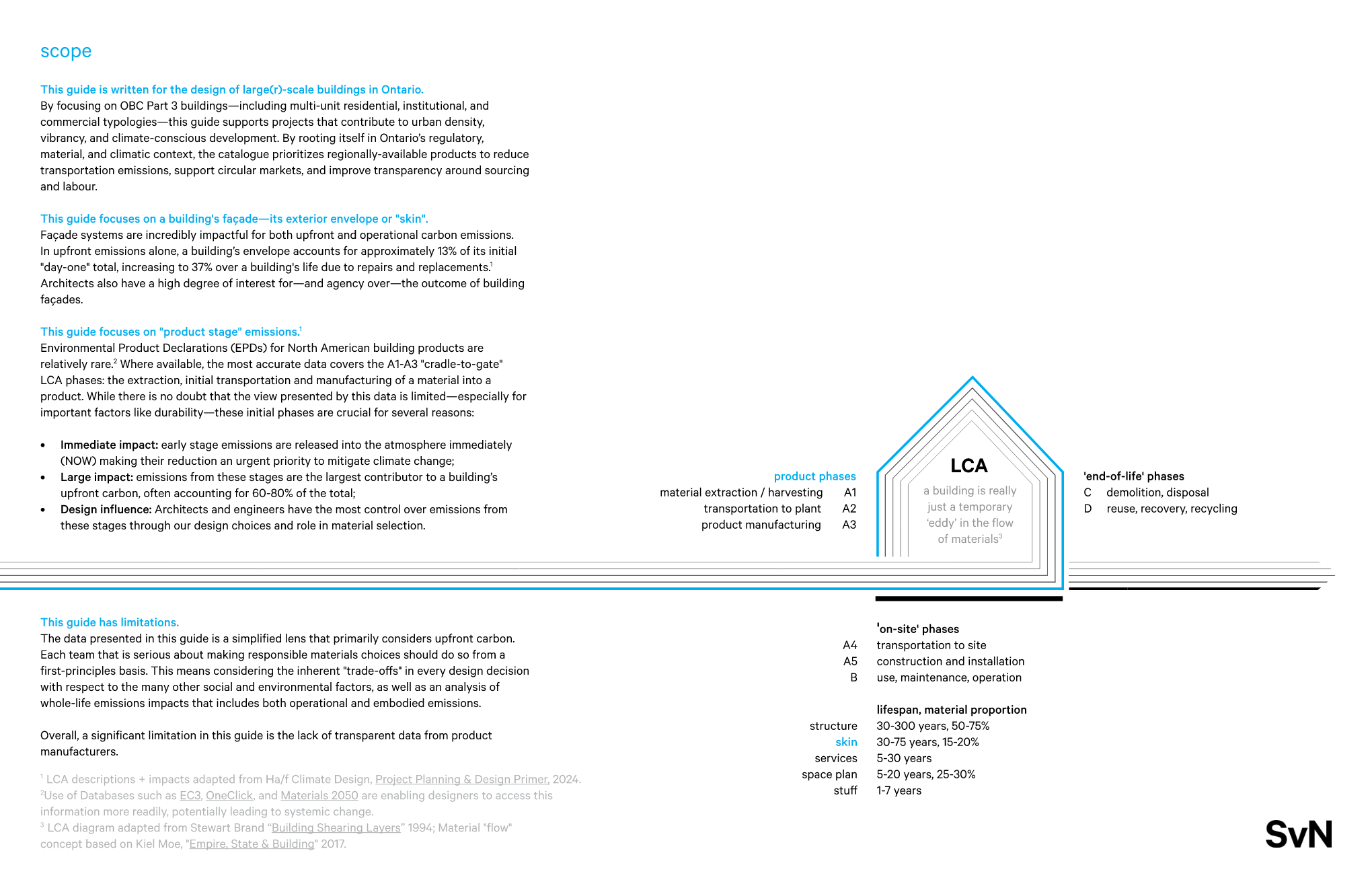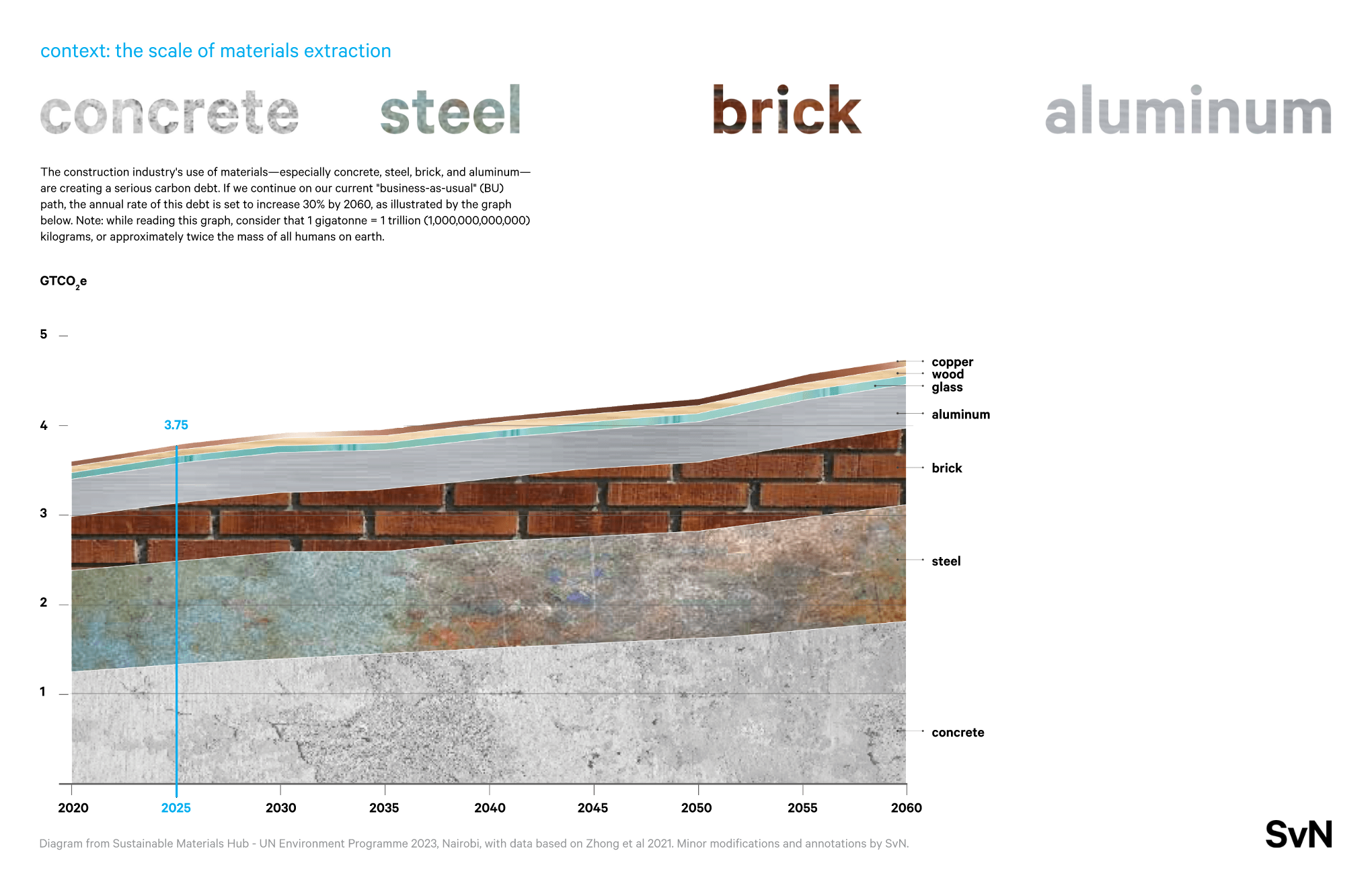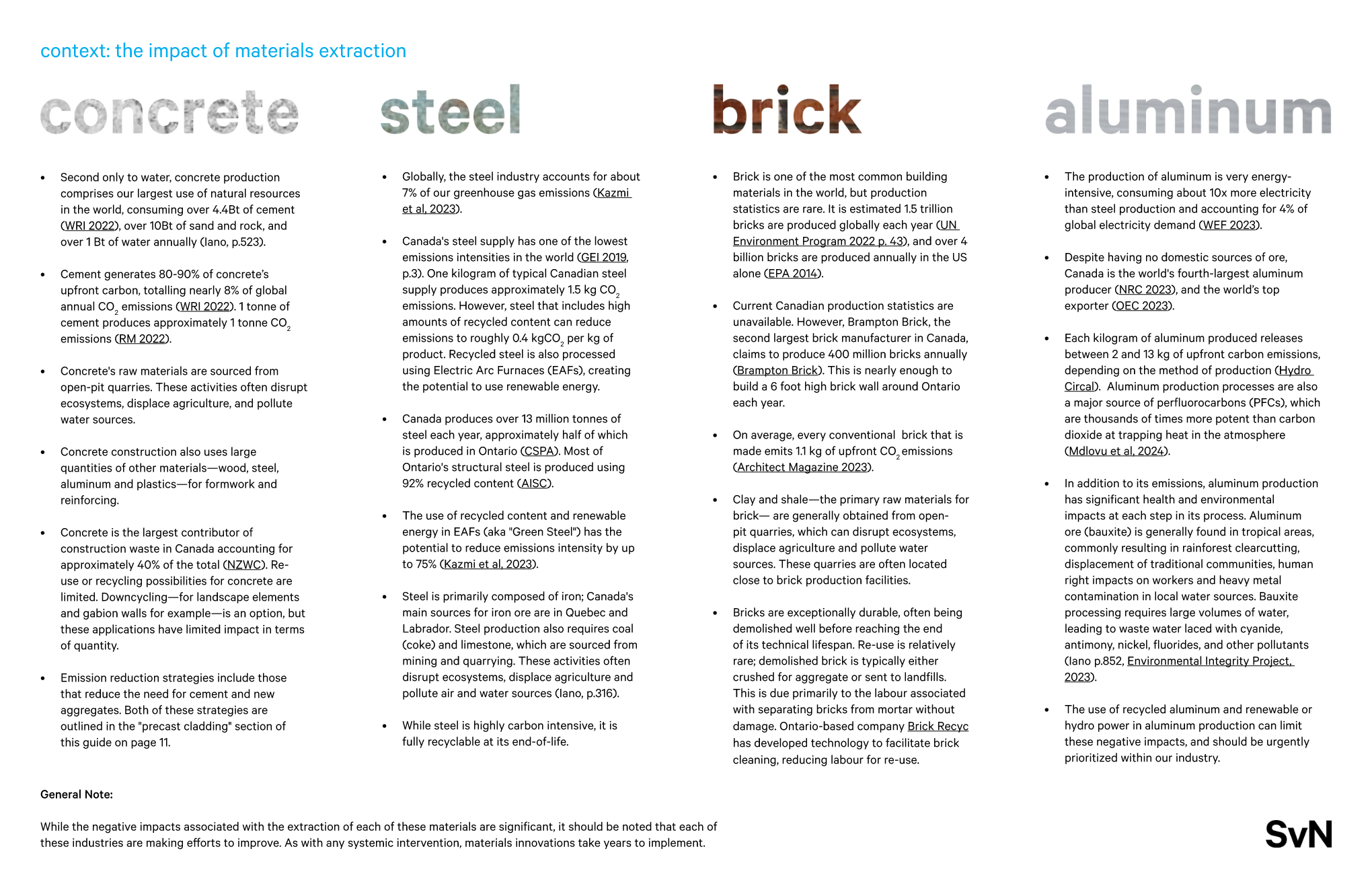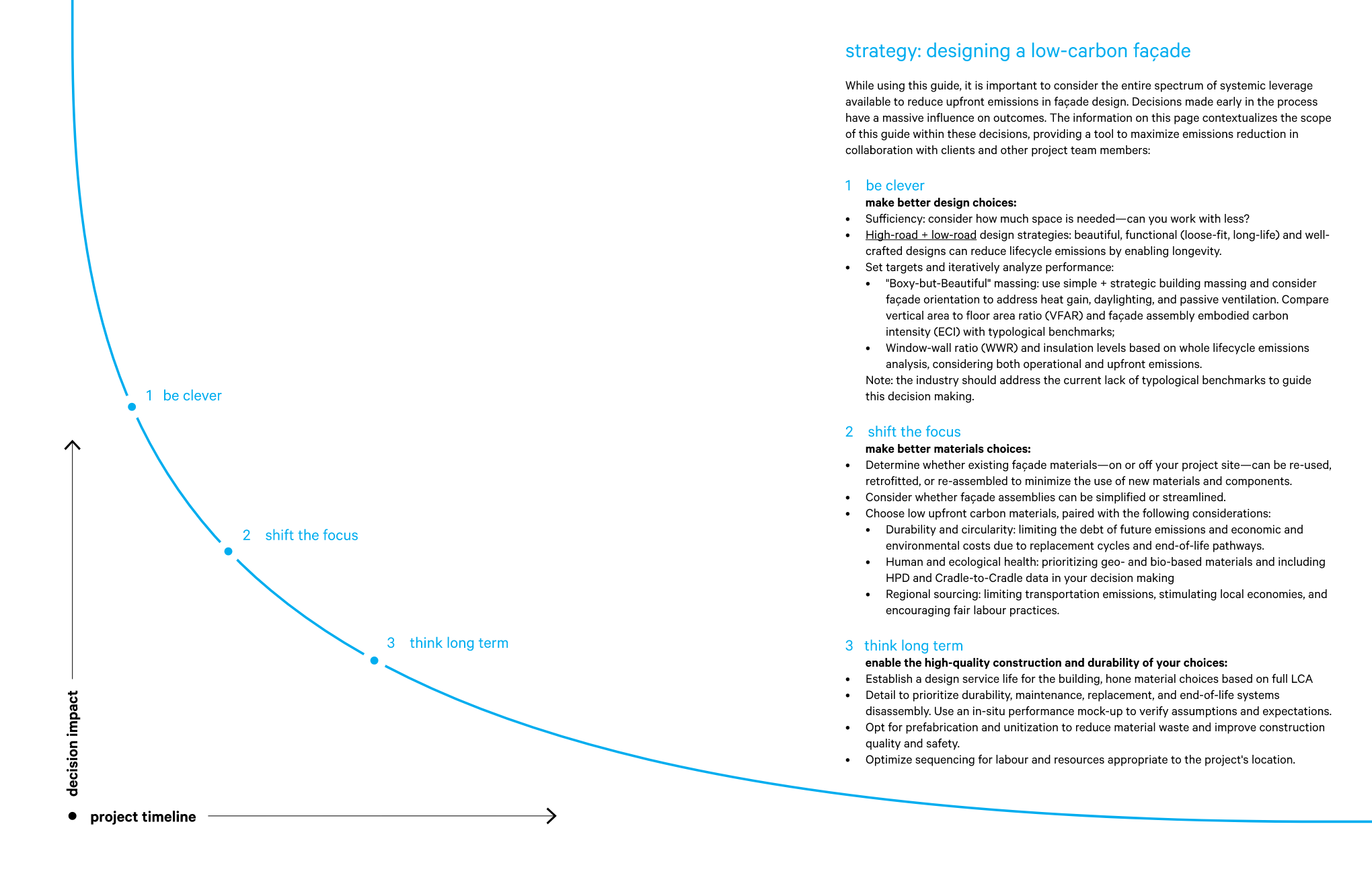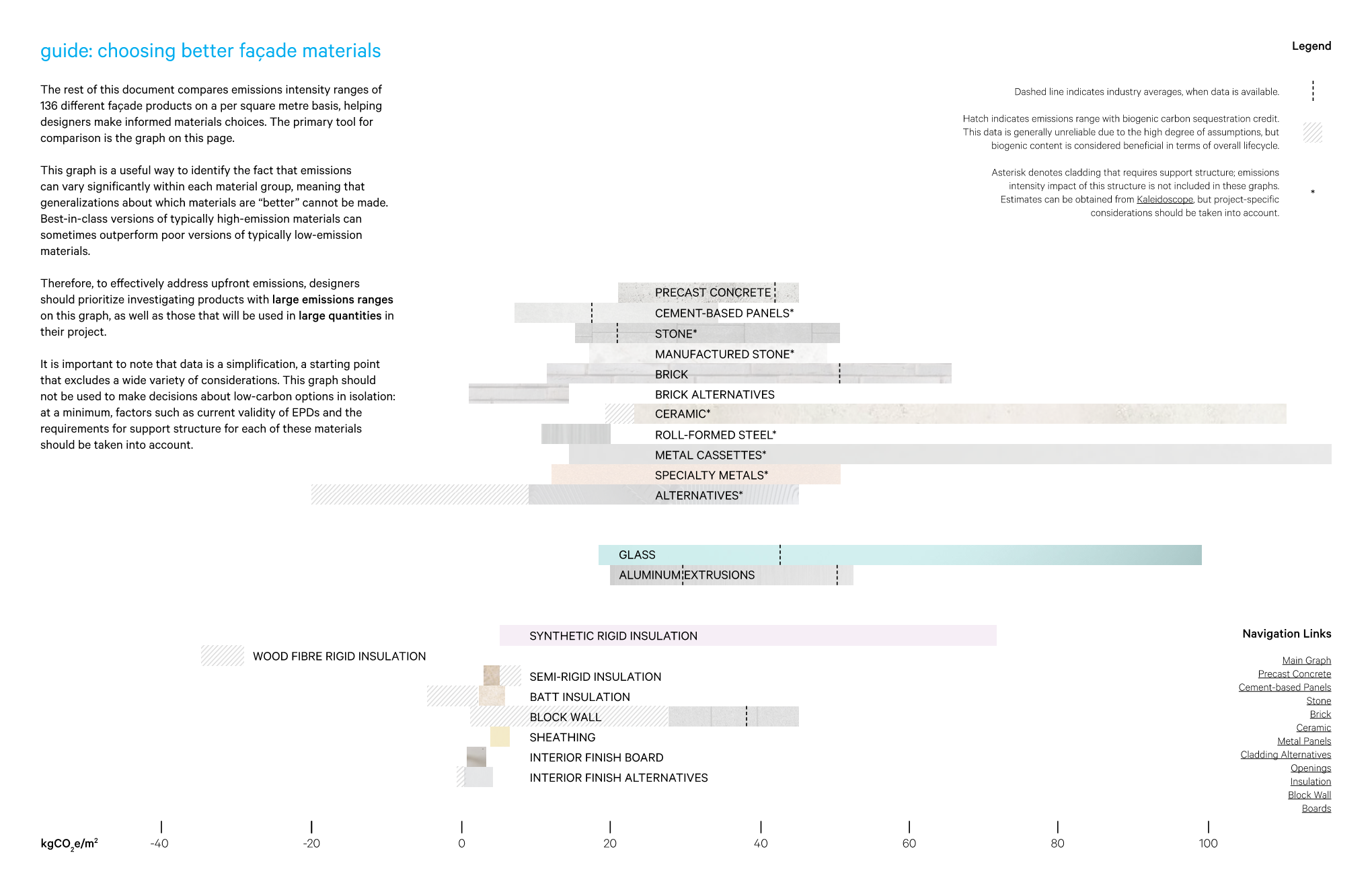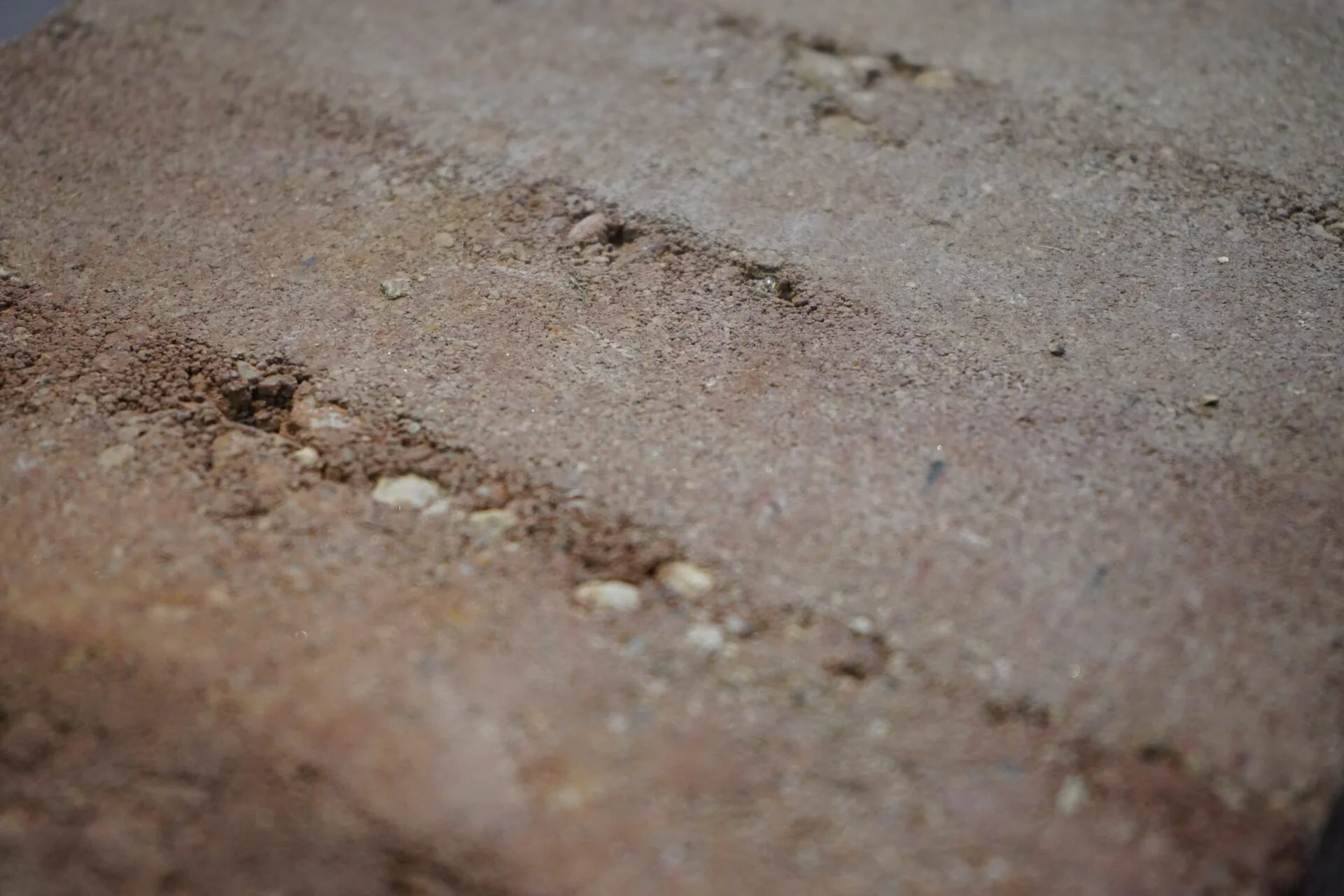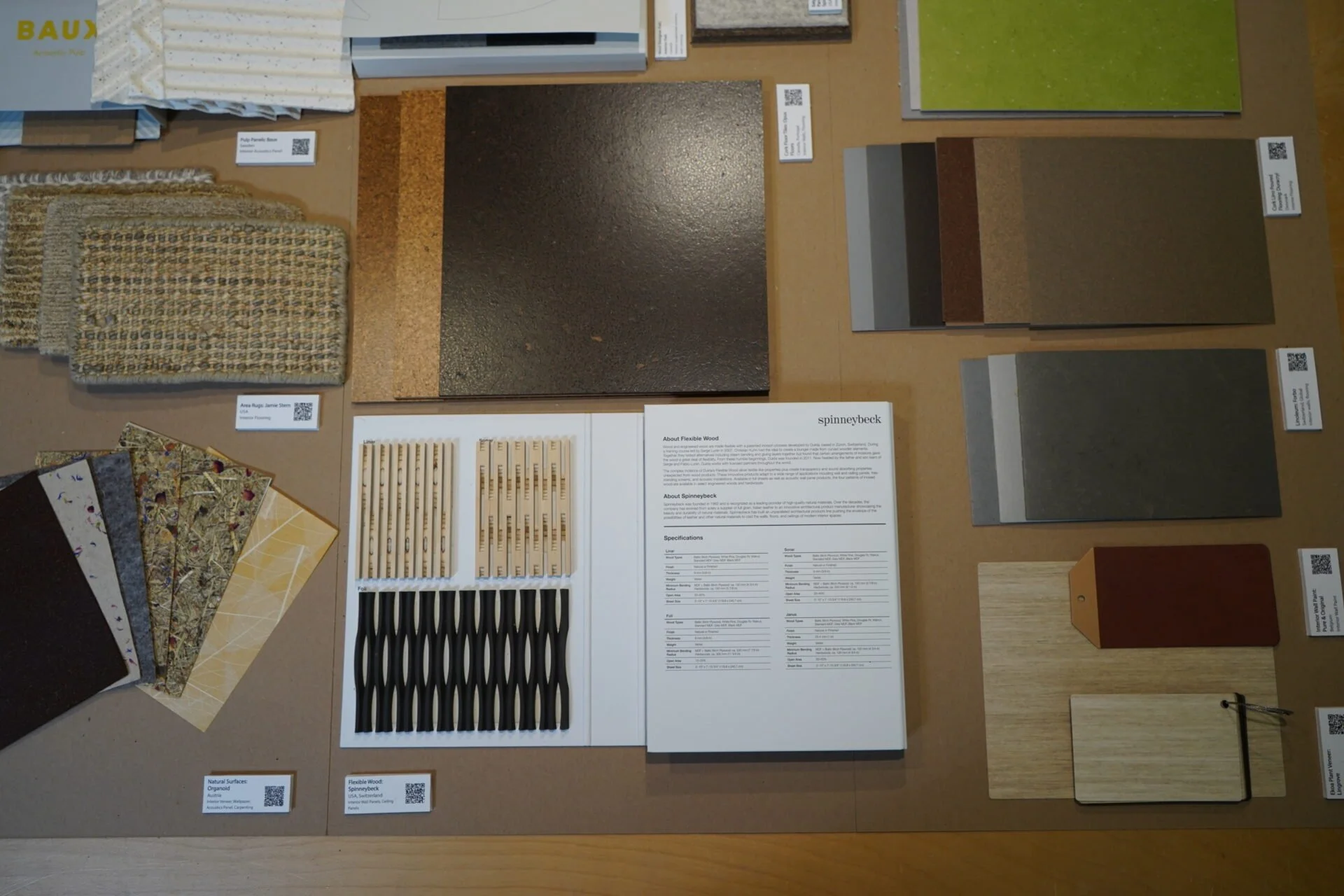NOW : The upfront carbon façade materials guide
— we need to make better choices, and this guide provides a path.
Façade systems play a critical role in determining both embodied and operational carbon emissions throughout a building's lifecycle. Research suggests that on average, the building envelope alone accounts for approximately 13% of initial embodied carbon emissions, with this proportion rising to 37% over the building's lifespan due to ongoing repairs and replacements.
This guide serves as a practical design tool that empowers architects and designers to make informed material choices that reduce embodied emissions during early design phases. Through strategic side-by-side comparisons and actionable insights, the guide contextualizes commonly used façade products and illustrates the emissions-related implications of different material selections.
The materials included focus on Ontario Building Code Part 3 buildings, encompassing multi-unit residential, institutional, and commercial typologies. This scope supports projects that contribute to efficient urban density and sustainable development patterns aligned with climate objectives: helping reduce embodied carbon emissions at a systemic scale. Recognizing Ontario's unique regulatory, material, and climatic context, the guide prioritizes regionally-available products to minimize transportation emissions, strengthen circular economy markets, and enhance transparency around sourcing practices and labor standards.
Shifting industry norms is no small task—but it’s essential. The Upfront Carbon Façade Materials Guide offers a clear, actionable step toward lower-impact design, when it matters most.
I would like to express my gratitude to the following firms for their valuable guidance and input:
Ha/f Climate Design
Lukachko Climate Strategies, University of Toronto
Builders for Climate Action
Moriyama Teshima Architects
MJMA
Arup
DIALOG
Related: Bio-Build Gallery
"Building with Natural Materials” is curated by SvN and KPMB in collaboration with the Toronto BioBuild Collective, with contributions from Zachary Mollica, Ha/f Climate Design, Étienne Issa, and Krista Ross.

